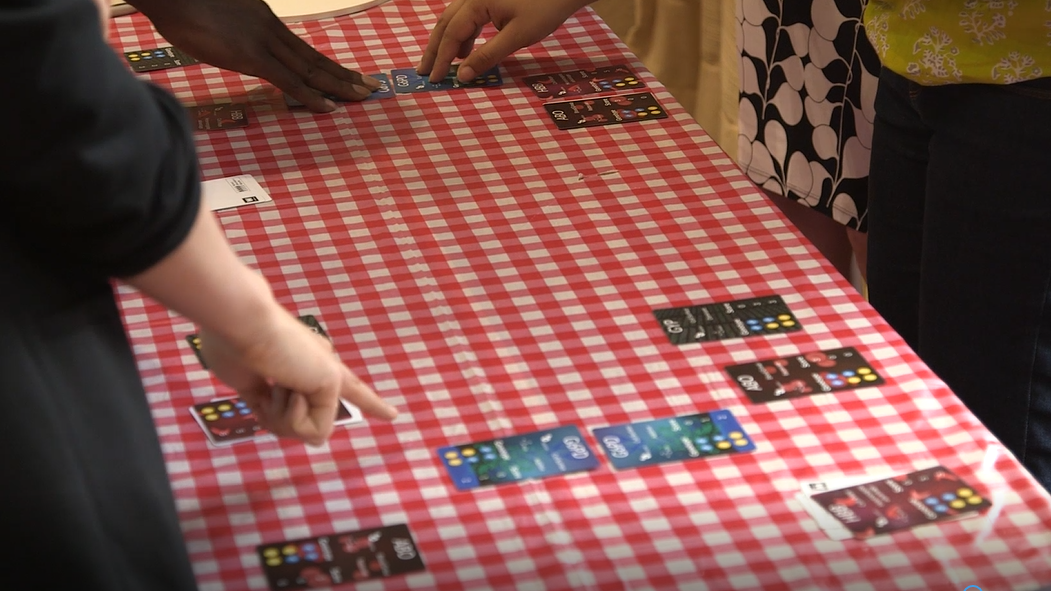Engagement, particularly in schools, can lack hands-on activity for a number of reasons: not having access to the materials needed; a lack of protocols on how to run a practical activity; a steer towards rote learning and written assignments as methods of teaching and assessment; and many more.
However, hands-on activity in engagement has a great deal of value and was one of the main topics discussed at the 2017 Wellcome Trust International Engagement workshop. In particular, the value of hands-on science demonstrations, experiments and practical exercises in helping to explore and explain complex science ideas.
This page gives a summary and links to some of the hands-on activities demonstrated at the workshop - including do-it-yourself guides to the activities, videos of the presentations and panels, and written summaries.
Science Engagement in Schools
One of the workshop's panel discussions focused on science engagement in schools.
Four experts in delivering school engagement activities, in a panel chaired by Imran Khan Head of Public Engagement at the Wellcome Trust, presented their projects and discussed the key challenges and considerations when engaging school children in low- and middle-income countries with health research.
To see videos of the panel discussion and subsequent question and answer session, plus summaries of the key issues to consider when delivering science engagement in schools, visit the Engagement in Schools article on Mesh.
Hands-on Engagement
Hands-on Activities
Browse below to find videos, how-to guides and discussions around the five hands-on activities demonstrated at the workshop. Click on an image or title to find materials that will enable you to try them in your own setting.
"From the perspective of someone who has no experience of engagement these activities have been very helpful - now I am thinking outside the box"
Workshop Participant, South Africa
"These tools really convinced me of the value of hands-on engagement as a model to generate interaction and mutual understanding between researchers and communities. I can see how it could work for many different stakeholders and look forward to exploring it in my own work."
Workshop Participant, Zimbabwe
| A Question of Taste: Bella Starling | Samala Moyo: Rodrick Sambakunsi |
 |
 |
| Hands-on at the Crick: Jenny Jopson | Cards Against Malaria: Brian Mackenwells |
 |
 |
| What Makes an Object Float or Sink? Alex Adadevoh | |
 |
|
Who are Hands-on Activities for?
These activities were well received in the workshop setting and although many of them were designed with children and young people in mind discussions focussed on how activities like these can also engage adults whether they be teachers, community members, parents or even policy makers. The “A Question of Taste” exercise demonstrated by Bella Starling has been done successfully with policy makers, for example.
Often, policy makers and other decision makers are lay audiences when it comes to the science and it is engagement practitioners, skilled in translating science for all audiences, who can be best placed to explain complex concepts to them. As such, practitioners should feel confident in their ability to do so and should not be afraid of using hands-on activities as part of this.
Making sure Hands-on Engagement is Two-Way
Although hands-on activities like those showcased above create a great platform for researchers and other stakeholders to discuss an issue, and create an easier way for non-experts to understand it, it is important to remember that engagement is a two-way activity and to include space for challenge and discussion in the activity too.
"Some of the activities feel like scientists just showing science to the public. We need to make sure that the community get a chance to feed into and challenge the science as part of the engagement, it has to be two way" - Workshop Participant Abraham Mamela, Infers Studios, Botswana.
Further Reading
Learning through Tinkering in STEM Education
This document from Relating Research to Practice provides practitioner briefs and links to four key pieces of research on the value and practicalities of engaging audiences with science through hands-on activities, or "tinkering". It comes from a USA perspective but there is useful learning to be found in it for any context.
The content on this page forms part of the online report for the 2017 International Engagement Workshop "It's Complicated: navigating scientific complexity in public and community engagement". To learn more about the workshop, access the rest of the report and browse the video presentations, discussion summaries, and tools made available from it, visit the workshop page.
This work, unless stated otherwise, is licensed under a Creative Commons Attribution 4.0 International License


